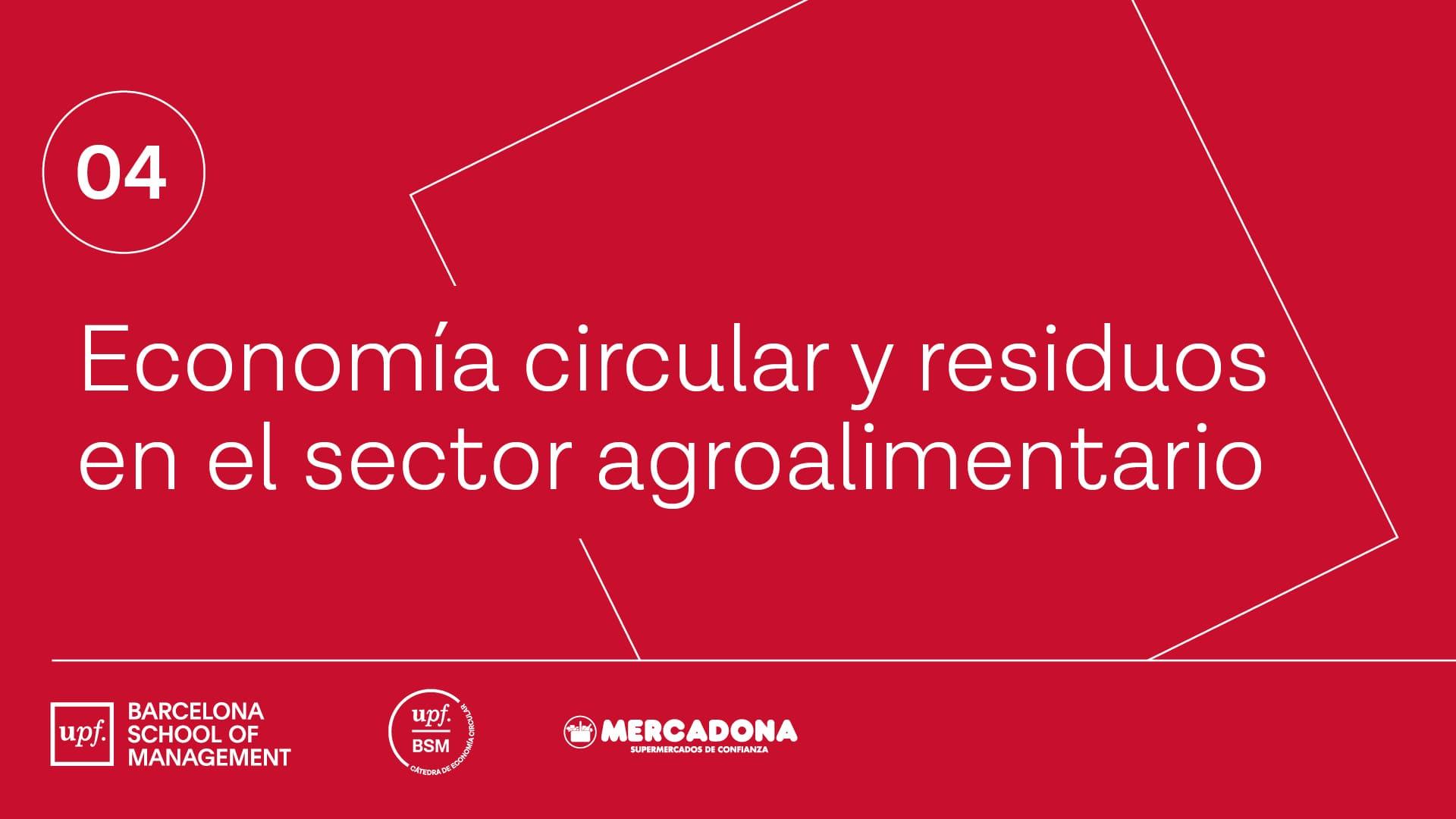Capsule 4: Circular economy and waste in the agri-food sector
6 Julio - 2023
This fourth and penultimate edition of the knowledge capsules created by the UPF-BSM’s Mercadona Chair analyzes waste management in the agri-food sector within the context of the circular economy.
Modern agri-food supply chains are facing a number of problems, including food loss and waste generation. The circular economy (CE) provides an opportunity to improve and optimize production and consumption in order to find a sustainable paradigm. Agri-food companies are increasingly aware of the benefits of increasing their efficiency in terms of their use of resources. As a result, we need to understand how to align environmental management with economic decision-making with a long-term perspective. The circular economy gives us a way to intervene and moderate the impacts generated by waste management in the agri-food sector, proposing actions and solutions to reintroduce waste and subproducts into the production chain.
The impact of waste conversion on economies
Positive environmental impacts can be observed in the following areas: raw material consumption, commercial and industrial raw material, carbon sequestration, environmental pollution, reuse of goods and equipment, restoration and remanufacturing, water reuse, and fostering biodiversity. With respect to business and technology, the implementation of the circular economy at a regional level can stimulate the development of technologies to improve waste processing even further to transform it into a more efficient resource, enhance the compatibility and technological symbiosis between technologies, promote business development based on commercial models that embrace the circular economy philosophy, and protect companies from the shortage of resources and price volatility, as well as generating new products and services.
How best to manage plastic waste in the agri-food sector?
Companies in the agri-food sector need cutting-edge technologies to manage waste, which requires innovations in terms of the existing products and technologies to boost the economic and environmental efficiency of waste management. Moreover, the integration of new sustainable technologies within the current waste management system will create a future in which all plastics are given a second lease of life.
With respect to the role of consumers, we expect them to change their habits in terms of the management of products at the end of their life cycle by, for instance, saving leftover food and recycling used packaging or taking it to waste selection points created for this purpose.
Most widely used waste management techniques
The most common plastic waste management techniques around the world are mechanical recycling, incineration and landfill. One of the five big challenges of sustainable waste management in the agri-food industry that applies the zero-waste model is the development of innovate techniques for recycling and reusing waste.
Products that come from reused waste to some degree have at least double the added value of products derived from the waste management strategies that current prevail, which are inconsistent with sustainable development. Certain strategies do not allow the same use for which the materials were originally designed. However, through the application of various waste management techniques, they can be converted into animal feed or waste treated in composting processes, anaerobic digestion and incineration and, as a last resort, the least desirable option, landfill.
In the agri-food sector, various waste management techniques are used to minimize waste generation, ensure the correct treatment of waste and reduce its and environmental impact. The most widely used techniques in the agri-food sector are:
- Source Reduction
- Recycling
- Reuse
- Composting
- Anaerobic digestion
- Incineration
Lastly, it is important to highlight that the choice of waste management technique will depend on factors such as the type of waste, the amount, the local regulations and the capacities and resources available in each specific situation.
